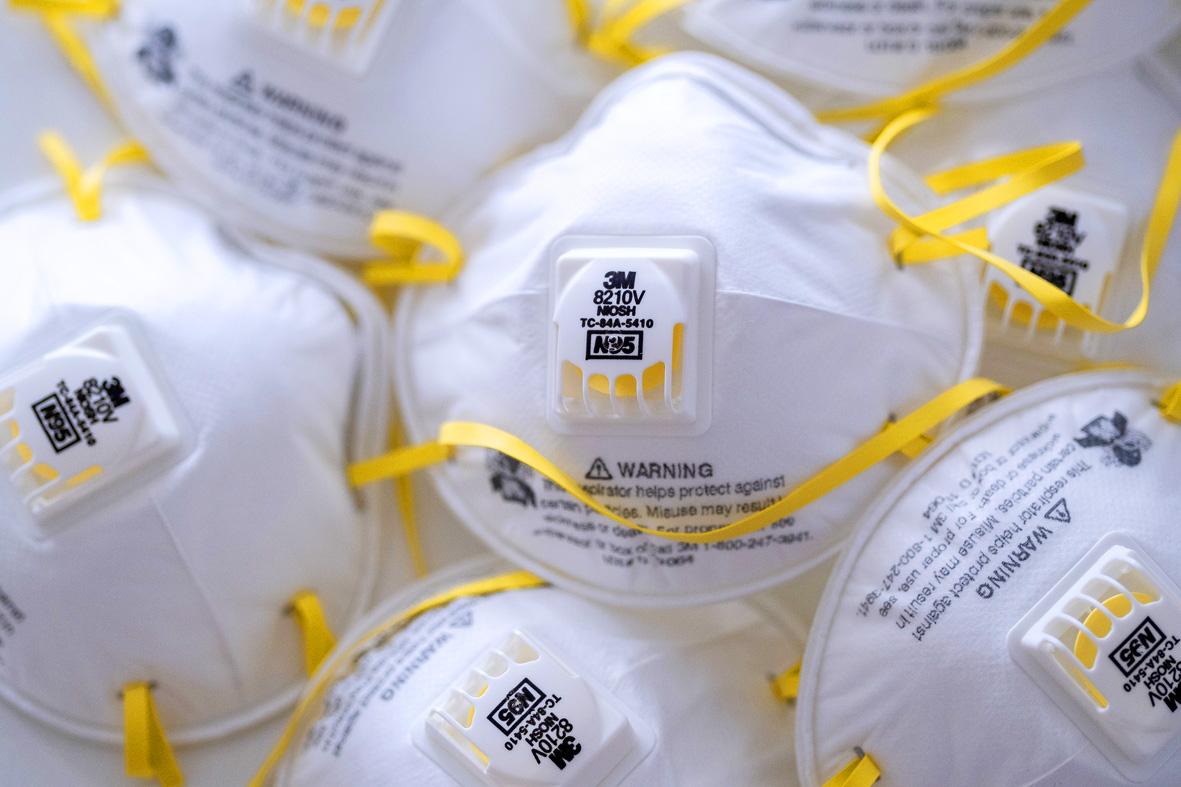The inventor of the key technology used in N95 respirator and medical masks is Taiwan-born scientist Peter Tsai (蔡秉燚), the Nonwoven Fabrics Industry Association said on Facebook on Monday.
Tsai was a professor in the University of Tennessee’s material sciences and engineering department for 35 years before retiring last year, and is a world-renowned expert in nonwoven fabrics.
He invented the electrostatic charging technology used to produce the filter media of masks, including medical and N95 masks, as well as heating, ventilating and air conditioning filters, and holds 12 US patents and 20 commercial license agreements for his inventions.
While Tsai might not be a household name, he recently became familiar to Taiwanese due to an article he wrote answering common questions about sterilizing and reusing N95 masks, the association said.
The “N” in the respirator name means “not resistant to oil,” and “95” means the ability to remove at least 95 percent of submicron particles, such as influenza viruses, dust, pollen, haze and smoke, the association said.
N95 respirators are made of four plies of polypropylene media: an outer veil that can resist moisture, a double-ply filtration layer and an inner layer that is in contact with the skin, it said.
The outer and inner layers — usually made of spun-bond nonwoven and thermal-bond nonwoven fabrics — have low filtration efficiency and breathing resistance, and serve primarily to contain the middle layer, it said.
The middle layer, made of meltblown nonwoven fabrics, seals any gaps through which submicron particles might be able to enter and is key to the N95 respirator’s filtration efficiency, it said.
To manufacture meltblown nonwoven fabrics, two fundamental technologies are required: melt blowing and electrostatic charging, with the former being a nonwoven process that makes a fabric composed of microfibers; and the latter being the embedding of permanent charges in a fiber to form an electret that enhances filter efficiency by electrostatic attraction, the association said.
Tsai’s research in melt blowing and electrostatic charging greatly improved the filtration efficiency of nonwoven fabrics used in masks, allowing submicron particles to be captured and stopped from traveling through the masks, it said.
Tsai found that a charged medium has 10 times the filtration efficiency of an uncharged medium, meaning that one ply of charged fabric can have the same power as 10 plies of the same uncharged fabric, and better air permeability, too, it said.
According to the article, when high-quality masks are exposed to elevated temperatures, such as 70°C, for 30 minutes, the chances that a charge will decay are extremely low, so people can repeat this sterilizing method multiple times without a noticeable loss in filtration efficiency, as long as the masks are suspended without coming into contact with or being near a metal surface, Tsai said in an article for the University of Tennessee Research Foundation that was published on March 25.
As for treating masks with bleach, the article states that charges will not degrade as long as the ingredients do not include surfactants, while hot water generally does not affect the mask’s filtration performance, as long as the inner and outer veils of the mask are not made of paper-like tissue.
Source: Taipei Times - 2020/04/08





















